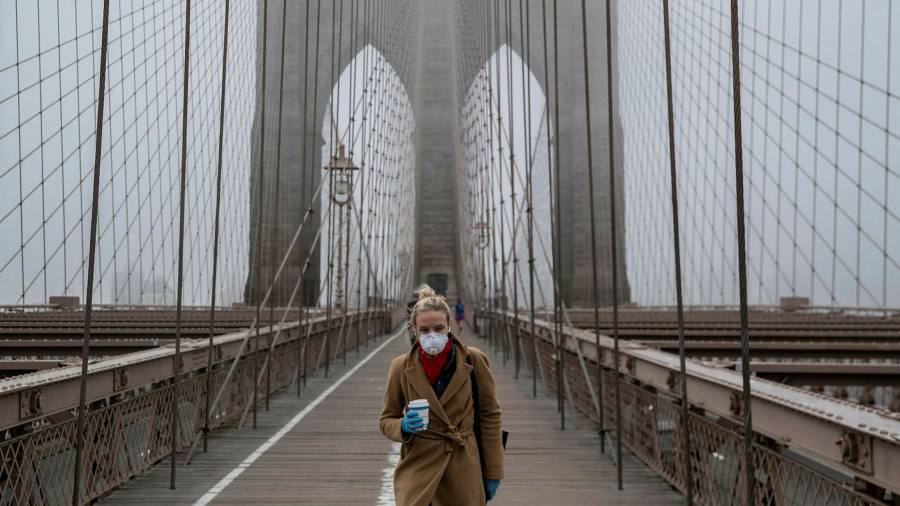The author is a professor of finance at the University of Chicago’s Booth School of Business
Is inflation the main risk stemming from the colossal levels of US public spending during the pandemic? Spending was spurred on by the belief that as long as the federal government can borrow without raising low interest rates, no one really has to pay. If the markets disagree, the rich can be taxed.
However, with the aging of the population and the slowdown in potential growth, the notion that industrialized countries can allow their sovereign debt to grow indefinitely, even at the most moderate pre-pandemic pace, seems optimistic. Past experience suggests that it will be difficult to get the rich to pay – they will vigorously oppose the new taxes and avoid them if implemented. If the $ 5 trillion spending in the United States so far enacted eventually requires ordinary taxpayers to bear some burden, its lack of direction or restriction will have adverse consequences.
Spending advocates point to tepid inflation over the past decade and the Federal Reserve’s credibility in fighting inflation. Concerns point to unprecedented levels of spending in relation to unused economic capacity, and the Fed’s stated determination to be patient even if inflation increases. But in such unusual circumstances, no one can be sure how inflation will develop.
What is clearer, however, is that all types of spending were justified on the basis that the government can and should offer relief to those affected by the pandemic. Undoubtedly, the government must help those most affected in times of calamity. For example, it makes sense to extend unemployment insurance when local jobs are scarce because of Covid-related closings, or to expand food or rent for the poor.
But losses are an integral part of business, even if they are related to the pandemic or induced by government policies. Poorly designed donations to small and medium-sized businesses may end up subsidizing entities that do not need support. Is a wealthy dentist, who will certainly recover much of the lost business when the economy reopens, as worthy of help as the community arts cooperative in a poor neighborhood? What if the donation is simply to reimburse your banker?
Less deserving of support are large companies, such as airlines. They must go bankrupt if they are in financial difficulty, as in the past. This allows them to reduce their debts while continuing operations. However, even these were helped under the pretext that their financial difficulties would prevent the economic recovery. Businesses suffered from the pandemic, but so did the common taxpayer. If government transfers to companies are not essential to their survival or growth, they are unfair gifts from the common taxpayer to the (often wealthier) shareholder and will undermine the political legitimacy of spending.
In a recession, another justification for spending is to stimulate economic growth. We are not, however, in a normal slowdown. The repressed economy will fuel the demand for travel, restaurants and hotels with the reopening of the economy. A large part of these savings stems from people’s inability to spend when they are stuck at home. Was more generosity really needed?
And could it have been better targeted? Stimulus checks are life-saving for poor families and will be spent on goods and services. But the tax multiplier is likely to be small when a worker who earns $ 70,000 a year uses his check to invest in cryptocurrencies. Retirees, who saw no reduction in their income, should also not spend unexpected checks.
In contrast, the United States needs to spend on bridges, broadband and charging stations, improving the capabilities of its people and even upgrading technology to support the state’s unemployment systems. By increasing the potential growth of the economy and redirecting it towards the future, these expenditures could be paid for. Unfortunately, this is likely to be more controversial, as Congress now plans to increase revenues to pay for the investment.
Why just now? In the early days of Covid-19, it was necessary to act quickly to contain serious damage to the economy, given the unknown dimension of the crisis. But in subsequent spending packages, politicians arguably did not want the populist assets that their constituents craved to be valued in the light of the need to pay for them.
Congress’ newly emerging fiscal caution comes after a profusion of spending. Unfortunately, the reluctance so far to be fiscally responsible can restrict even essential investments. And the frequency with which we experience crises “once in a century” suggests that the cost to future generations of consuming their fiscal space can be substantial. Inflation is not the only risk in the recent US fiscal behavior.
